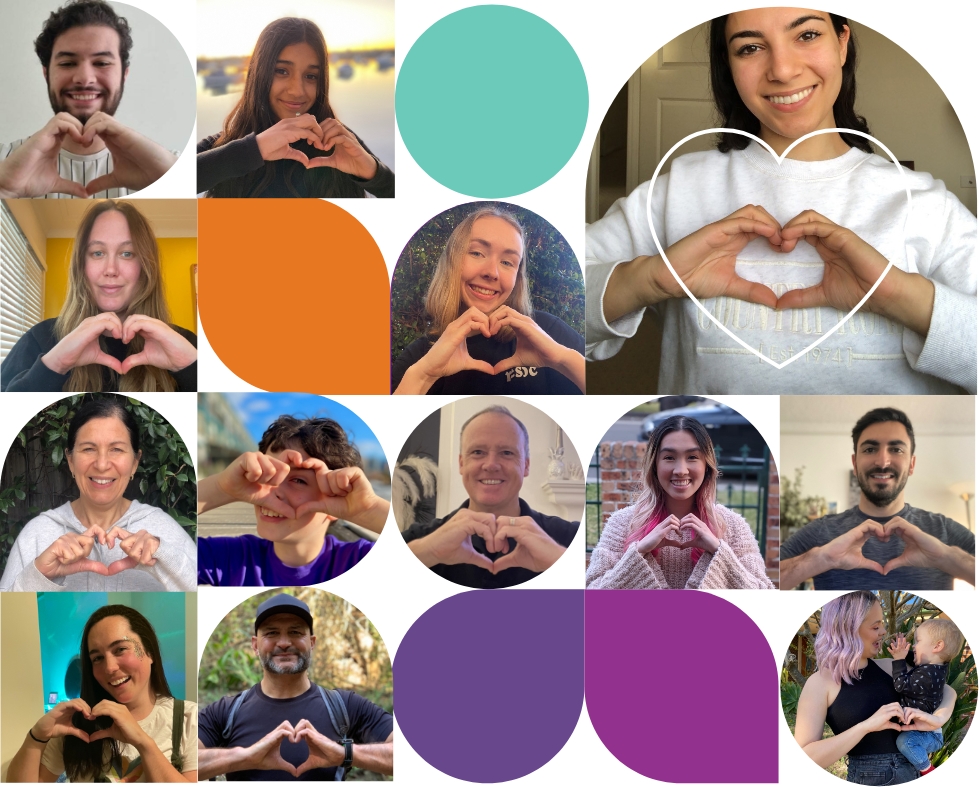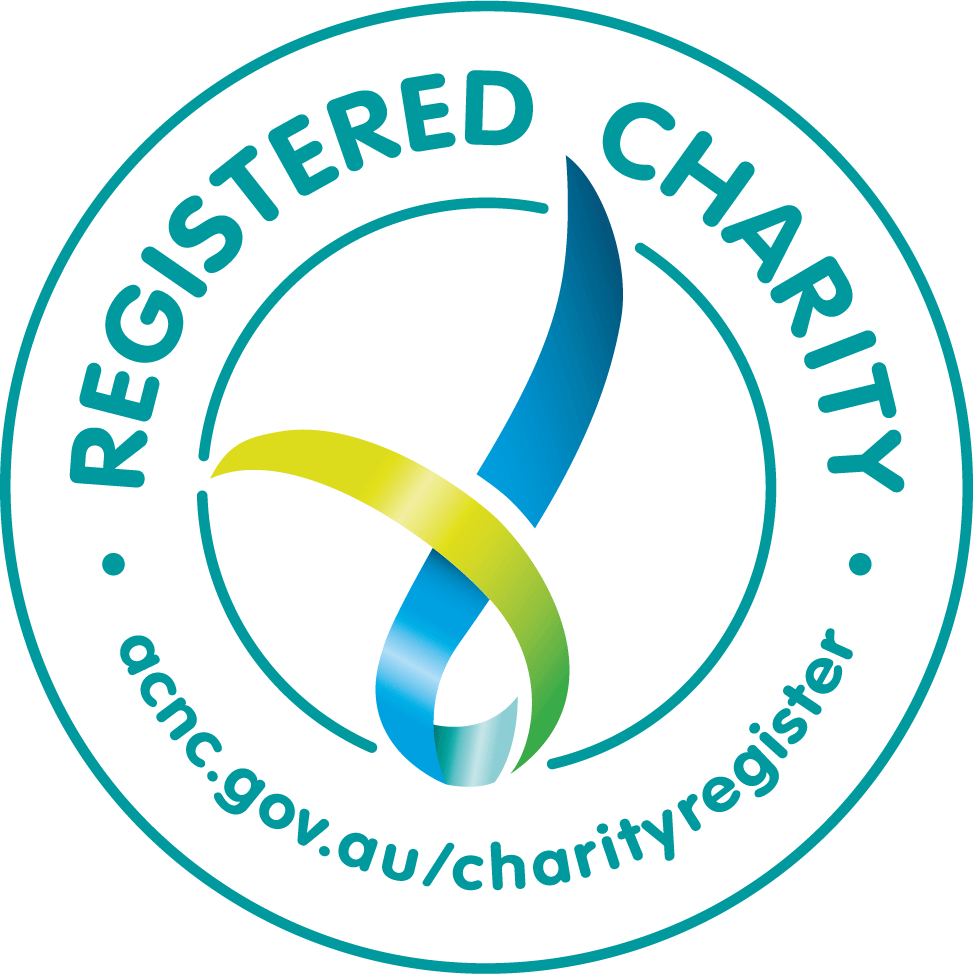With your leadership, Gold Dinner 2021 reached a record-breaking total of over $5M, helping to shine the light on the mental health crisis in our young people. Because of your incredible generosity, you are helping shift the dial and are making a critical difference to support these kids in crisis.
Within the Mental Health Unit and Emergency Departments at Sydney Children’s Hospitals Network (SCHN), there was an urgent need to support new crisis intervention strategies for children and young people with mental illness and to further research into why youth mental health is on the rise, and what can be done to prevent it. Your support has helped to fulfill this need.
- 1 in 10 young people in NSW are reporting high levels of psychological distress
- SCHN emergency departments are reporting an 11% per annum growth in 12-17 year olds presenting with mental health issues, some as young as 8
- In the last two years alone there has been an 80% increase in young people with self-harm or suicidality being admitted to the emergency departments
This phenomenal amount raised will help bolster the only mental health service in NSW solely focussed on children and young people and help them to provide care for the most complex patients.
Your generous funding will SCHN investing in research, clinical and therapeutic support for hundreds of kids and adolescents, with these programs starting now and continuing over the next three years.
Providing the best, most comprehensive service for our most vulnerable kids in the community has been made possible with your incredible support.
Your support is making a difference
Critical Clincial Care
Supporting families and children to stay safe at home – Appointment of a full time Clinical Nurse Consultant (CNC) for 3 years
More than 2000 children were admitted to SCHN emergency departments in acute mental distress over the past year. Specialized support from a full time emergency mental health nurse was urgently needed in the Emergency Department at Sydney Children’s Hospital, Randwick and your support helped make this possible. This new CNC position will provide comprehensive assessment, counselling, education, and connection with community-based services to families in ED to support more than 80% of children in their local area. By guiding families through the handover to external services, such as Safe Haven and Help 2 Win, children will be able to remain safely with their families in the community.
Providing more in-hospital support – Appointment of Senior Registrar for 3 years
This senior clinical position is on-the-ground seeing patients and families with thoughtful and critical assessment of what’s needed and next steps. This senior registrar will work alongside the CNC and the Child and Adolescent Psychiatrist for a comprehensive assessment and plan. The appointment of a senior registrar will provide a gap in support at Sydney Children’s Hospital, Randwick.
Child and Adolescent Psychiatrist – funding support for 3 years
Suicide is the leading cause of death for young Australians. This is a shocking statistic but one that is hoped to change with investment in mental health prevention and early intervention support. Additional support of hospital-based child and adolescent psychiatrist helps to provide direct clinical care, assessment of safety risks, consultation to other health professionals, and service re-design, to ensure that the best available care is provided for children and young people. The team cover an overview of services to consider the best care pathways, alongside managing risk.
Supporting BOUNCE team – 3 years of intensive care support for obsessive compulsive disorders
1 in 50 children have obsessive-compulsive disorder (OCD). COVID-19 has triggered worsening of OCD and the deterioration of previously well-managed symptoms and has increased presentation of new cases.
The BOUNCE clinical team specialises in obsessive-compulsive and related disorders and includes a Child and Adolescent Psychiatrist, Clinical Psychologist, and a Family Therapist. The team works with patients to referring agencies and other mental health services, commencing clinical programs with patients of SCHN and the Eastern Suburbs Mental Health Services of South-East Sydney Local Health District, with expansion and prioritising at-risk populations. Research and development of models of care in this area of mental health conditions transfers learnings to other areas within mental health care.
Social and therapeutic support
Build Peer Support Worker capacity across SCHN – New Position over 3 years
Feedback from patients and families hugely support this service and how beneficial it is to be heard and understood by people who share the experience with them. The support program connects young people coming to services at SCHN with a peer worker who has a lived experience of mental health issues. With more peer support workers available, this will help young people to feel less isolated or alone, helping to develop and improve their emotional regulation skills.
Greater Therapeutic Support through Music, Art and Movement across SCHN – Across program supported for 3 years
Last year, the Acute Mental Health Units admitted over 450 children and young people. These admissions have doubled over the past 5 years. This funding support will increase the capacity to provide Mental Health Therapeutic Program therapies in the Saunders Unit at SCH and the Hall Ward at The Children s Hospital at Westmead (CHW) to reduce time away from home and family
The Mental Health Therapeutic Program was a temporary COVID service, and with this generous funding, has now become an important health initiative and service provided across both hospital sites. These include:
- Music therapy sessions - helping children self-regulate, reduce anxiety, and experience a sense of synchronicity. Music is known to improve communication, socialization and improve
- Art Therapy sessions – providing an opportunity for self-expression in the context of a safe space with an art Young people can regulate and express their emotions which helps to reduce self-harm and helps young people find positive ways of dealing with negative emotions
- Physiotherapy – research supports exercise as boosting mood and improving physical Personalised and group physical activity plans help young people develop a sense of their bodies, improve fitness, wellbeing and helps them to manage strong emotions in a healthy way
Research and education leading the way
Supporting vital research for early intervention – SCHN new Post Grad position over 3 years
50% of mental health conditions present before the age of 14, meaning early access to high-quality mental health care and research for children is critical. In order to intervene effectively clinicians must understand what is occurring and the critical factors contributing to this. A Postgraduate Fellowship in psychology will select an early career researcher to work with the hospital to identify new ways to understand and intervene in mental health issues. This position is a huge step forward in supporting the critical work done with patients in clinics and the wards and connecting vital research for better health outcomes.
Alarmingly, research and modelling suggests that mental health in the community will get worse before it gets better over the next 5 years. The research done now can greatly impact the care and intervention provided to kids and reduce that 5 year timeline. This will help families get the care, therapies and diagnosis they need sooner.
Research will focus on areas such as population mental health, OCD, eating disorders, intellectual disability, chronic medical conditions, or mental health service provision.
Other areas of research will be looking at the ongoing impact of COVID-19 and the psychosocial outcomes. Recurrent year funding helps build capacity for the Mental Health Unit Service for impactful and informative research.
Education to upskill healthcare services for Mental Health – SCHN training access for 3 years
The crisis response to mental health requires the ongoing support, training, and supervision of the specialist mental health front line workers. The mental health team will use the educational funds to upskill and further train groups and individuals within SCHN. Areas of focus for training will include eating disorders, risk assessment and management, OCD, mental health needs of people with developmental disabilities or chronic medical conditions.
“We have been overwhelmed by the incredible generosity shown during this year’s Gold Dinner. This donation could not have come at a more important time for our service, and we are so grateful to everyone who contributed, especially during a time that has been challenging for many.
Across our hospitals, we have seen the effects extended lockdowns have had on our children and young people and how the stress of the pandemic has impacted psychological development, not only in our patients but in family units as a whole.
Enhanced nursing and medical care, therapeutic interventions like art, music and movement and specialised mental health nurses are all essential in caring for these children and families and your support has helped ensure this can continue.
I would like to sincerely thank you on behalf of our service for your incredible generosity. You too are an important part of our team working to provide the best care for the young people of Sydney. We couldn’t do it without you.”
Dr Katherine Knight, Medical Head of Psychological Medicine at SCHN





